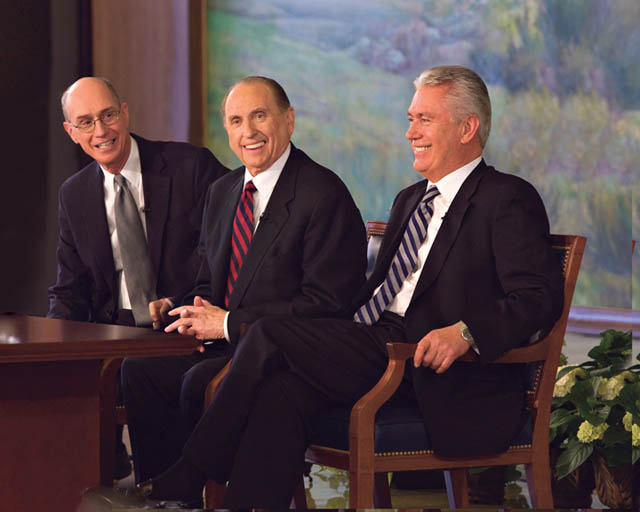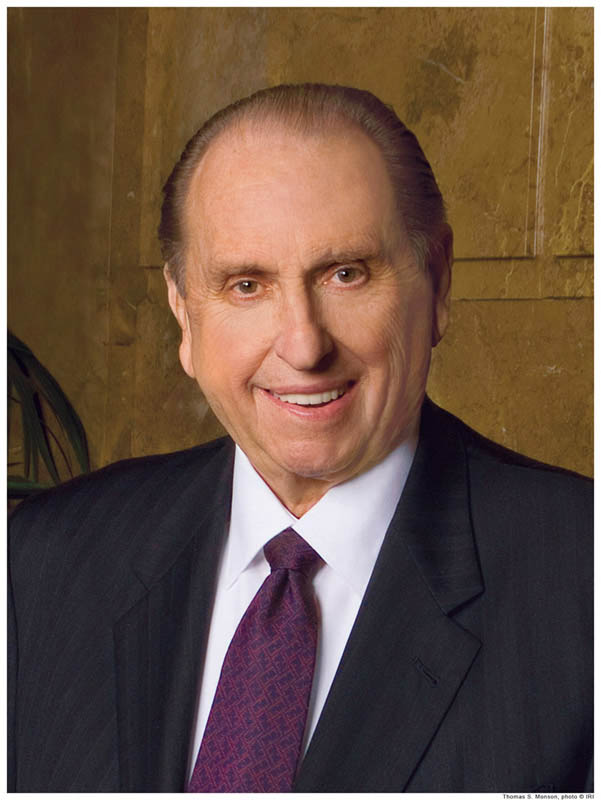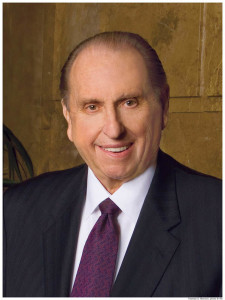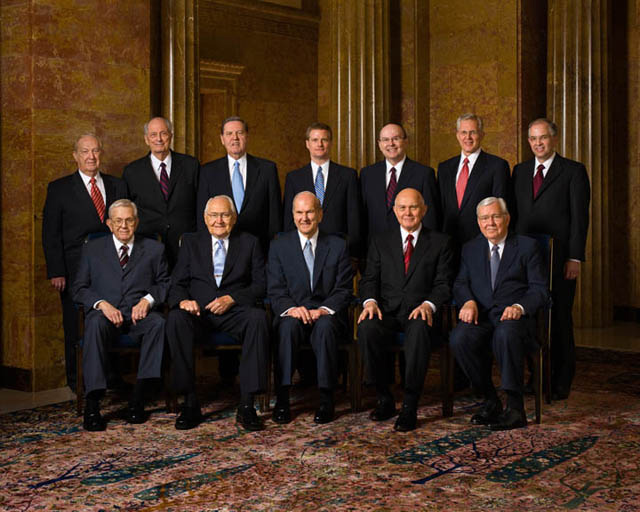Have you ever played the children’s game of telephone? In this game, children line up. The child at the start of the line whispers something to the person next to him. That person whispers what he heard—or thought he heard—to the next person. The game continues until the last person has heard the sentence. He announces what he heard and nearly always, it has little or no relationship to the original sentence. The message got scrambled in the excitement of the game.
 When Adam was created, he spoke directly with God, and was the first prophet. God taught Adam the gospel in its fullness. When Adam died, a new prophet took his place in the role. Practices changed over the years, but not truth. God instigated preparatory practices when His children were unable to live the higher laws. He taught the gospel line upon line as people were ready for it. Some took on other beliefs however, and it was not many generations before other religions developed.
When Adam was created, he spoke directly with God, and was the first prophet. God taught Adam the gospel in its fullness. When Adam died, a new prophet took his place in the role. Practices changed over the years, but not truth. God instigated preparatory practices when His children were unable to live the higher laws. He taught the gospel line upon line as people were ready for it. Some took on other beliefs however, and it was not many generations before other religions developed.
When Jesus Christ began His earthly mission, He chose apostles to assist Him and to carry on the work when He was gone, knowing His mission would be brief. His apostles worked hard to share the gospel and manage the churches. However, as they traveled, they realized false doctrine and misunderstandings were occurring throughout the church. As in the game of telephone, the messages being sent were getting scrambled along the way, and people were adding their own interpretations and ideas to those offered by the apostles.
After the apostles were gone, there was no one with the authority to act as a prophet or to receive instruction from God. Without anyone to straighten out the misconceptions, they grew rapidly. In only a short time, there were many different groups teaching differing versions of Christianity. Periodically councils were held to try to come to an agreement on the differences, and while the majority were able to vote on a doctrine, not everyone agreed and those groups often went off to form their own churches.
Today, as we look around us, we can see the confusion of messages has become very complex. There are thousands of church within the Christian label, each differing from the others. Even some denominations have splits as they try to decide what to do about issues that are more common now than they were in the Savior’s time, such as women in the clergy.
God has instructed us to seek truth, and promised He is not a God of confusion. However, it is certainly easy to get confused when we set out to find out where the truth is located. Churches have a variety of methods for figuring out what is true, but in Biblical times, doctrine was not put to a vote.
From the beginning, God set out an orderly plan for His gospel to proceed. He had a prophet who told us what was true and what to do. Those who recognized the prophet were not left to figure out what was true—they needed only to follow the prophet. Those who did not recognize him or listen to him suffered the consequences.
The purpose of those prophets was to bring God’s truth to mankind, to warn them of danger, and to prepare them for the arrival of Jesus Christ. Look around our world today. Do you see a need for those three things in our modern day? We know the Second Coming is rapidly approaching, and so, if prophets were necessary to prepare people for the first coming, wouldn’t it be equally necessary to have them to guide us through preparations for the final coming? Do you see a need for sure truth in today’s complex world? Do you see danger in changing world conditions?
It is no wonder God needs to return the prophets to the earth. There is a great deal of work to do to prepare the world for the return of the Savior, and there needs to be a leader for the work.
While it is true we have the Bible to guide us, we can easily see people do not understand the Bible and disagree over what its teaching mean. Even essential doctrine such as baptism is debated. In addition, the world has changed dramatically since Biblical times. Every day, new technologies, new issues, and new ideas about morality arise. The Bible doesn’t mention many of the issues people struggle with today. A prophet can guide us through these challenges and help us to stay on God’s path without having to guess or interpret.
It’s important, having recognized the need for a prophet, to follow the right one. Mormons are taught not to take anyone’s word for his identity. Before baptism, prospective members, including children, are asked to pray to God to know if Thomas S. Monson is a prophet. He is the current prophet of the Church of Jesus Christ of Latter-day Saints, whose members are sometimes referred to as Mormons. When he dies, an orderly process will occur to place the next prophet into the office without campaigning or voting.
A person who wanted to know for himself, without trusting the opinion of any earthly person, can do so if he has faith. God has promised that if we lack wisdom, we can ask God and He will give it to us. (See James 1:5 in the New Testament.) A good way to begin is to talk it over with God, explaining what you are going to do and why. Ask Him to guide you through the process and help you recognize His “voice.” You most likely won’t hear an actual voice, of course, but you will learn to recognize how He communicates with you when you pray.
Next, Mormons are taught to put some personal effort into it. Mormons believe in doing all they can for themselves, and letting God make up the difference. You can learn more about prophets by visiting the official Mormon site designed to help curious people learn more about Mormons. Visit Mormon.org.
You can also read about prophets on internet sites by members who are not official, but who want to share what they know. One unofficial place to learn about prophets is ModernProphets.com. On this site, you can learn about the prophets who have been sent to lead us toward the Second Coming of Christ. To learn specifically about Thomas S. Monson, the prophet at this writing, visit the unofficial site ThomasMonson.com
Once you feel you have some information, it’s time to think about what you’ve learned. Ask yourself:
Do we need a prophet today?
Does the world seem confused about truth?
Does Thomas Monson teach things a prophet might teach?
What is the spirit telling me as I study?
How do I feel about all this so far?
Then go to God in prayer. Share all you’ve learned and felt. Be honest with God—He knows your heart. Tell Him what you think and then wait patiently for confirmation. It may take time. It took me many months to receive my first answers to prayers because I had to learn how. I began receiving small answers, and then larger ones over time.
Once God has confirmed to you that President Monson is His prophet, you can begin to learn more about the messages He shares with the world. This coming week, you can watch Him on television or the internet and listen as he speaks to the world in General Conference. At Mormon.org, you can ask to talk to a missionary about the new things you have been learning, or you can ask a Mormon friend.
The late Terrie Lynn Bittner—beloved wife, mother, grandmother, and friend—was the author of two homeschooling books and numerous articles, including several that appeared in Latter-day Saint magazines. She became a member of the Church at the age of 17 and began sharing her faith online in 1992.






